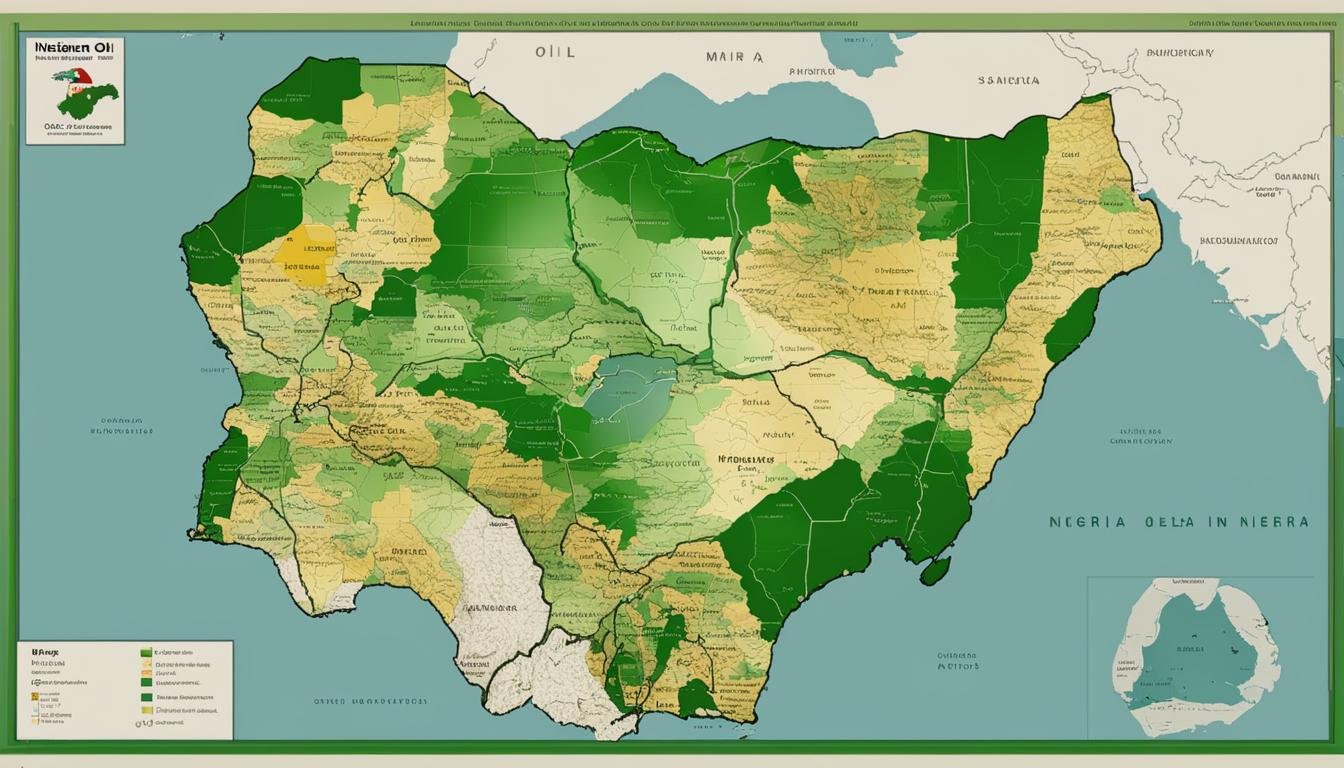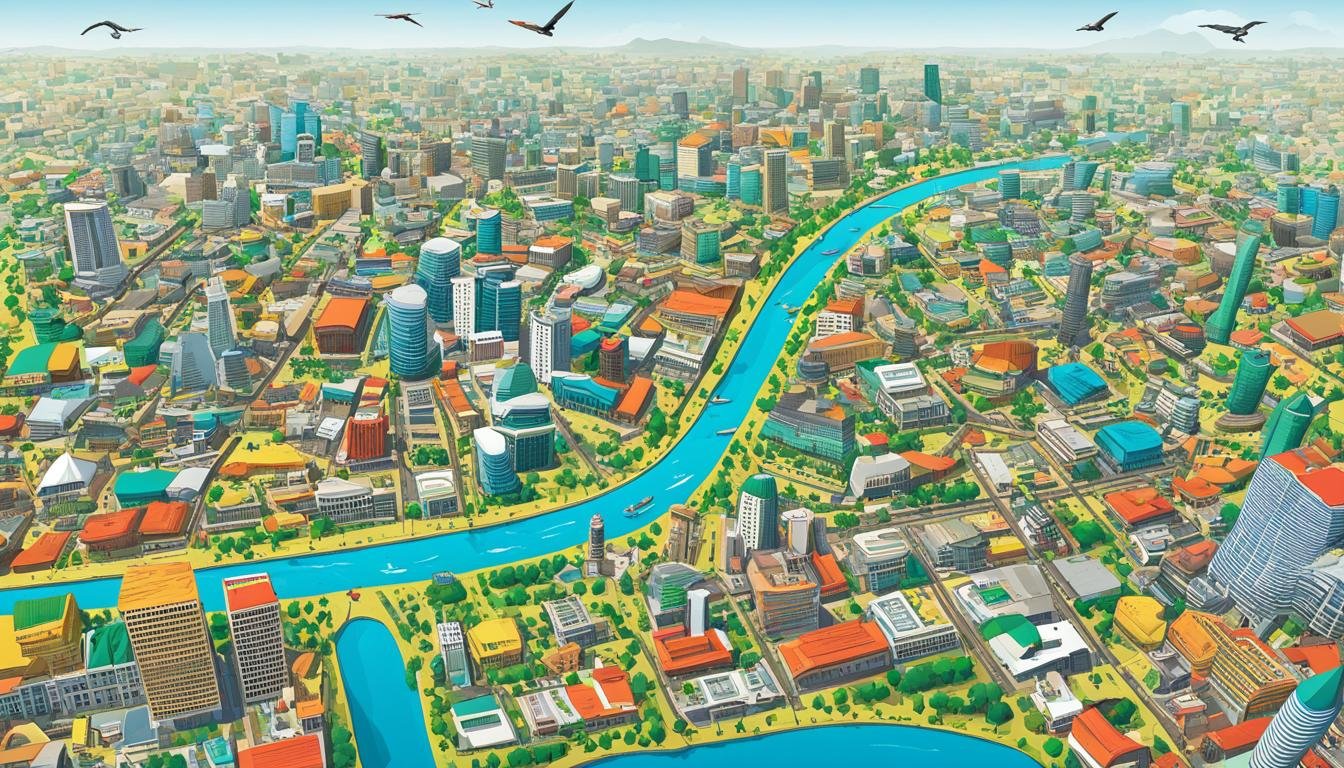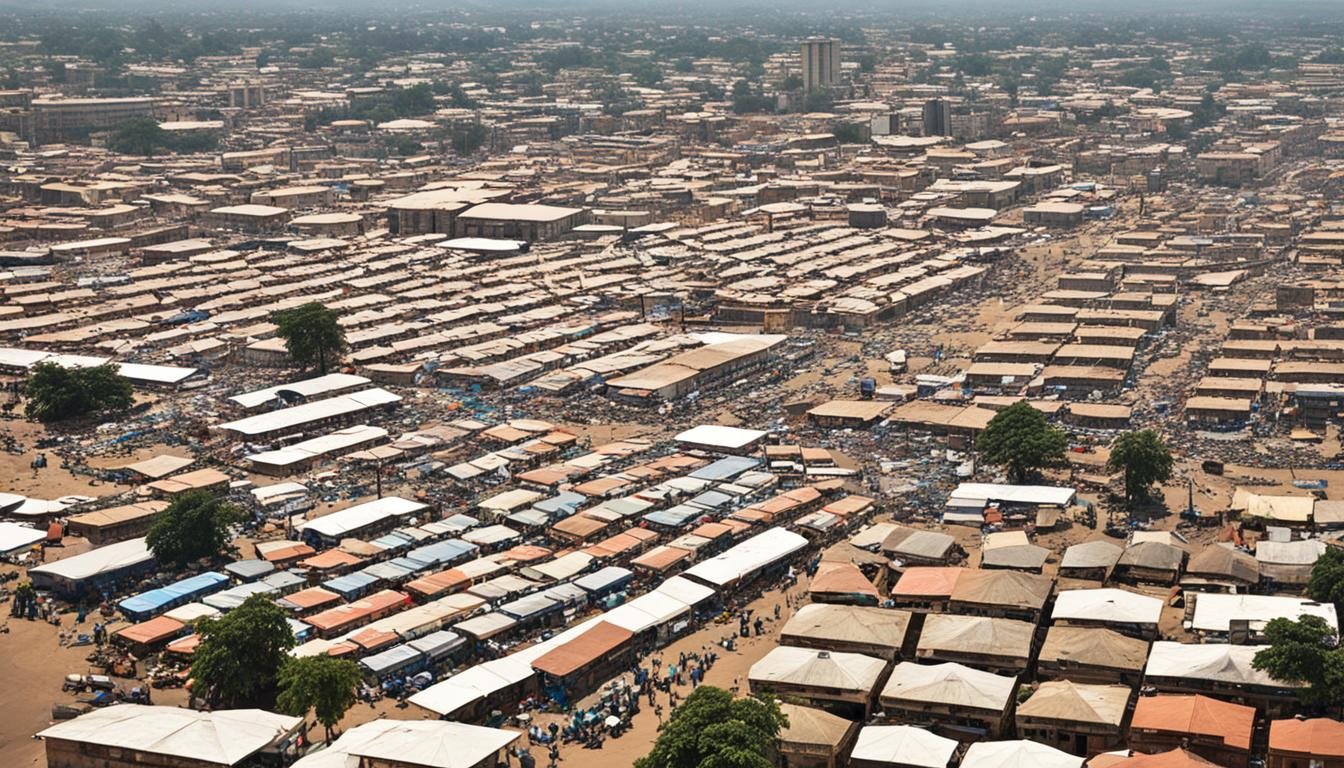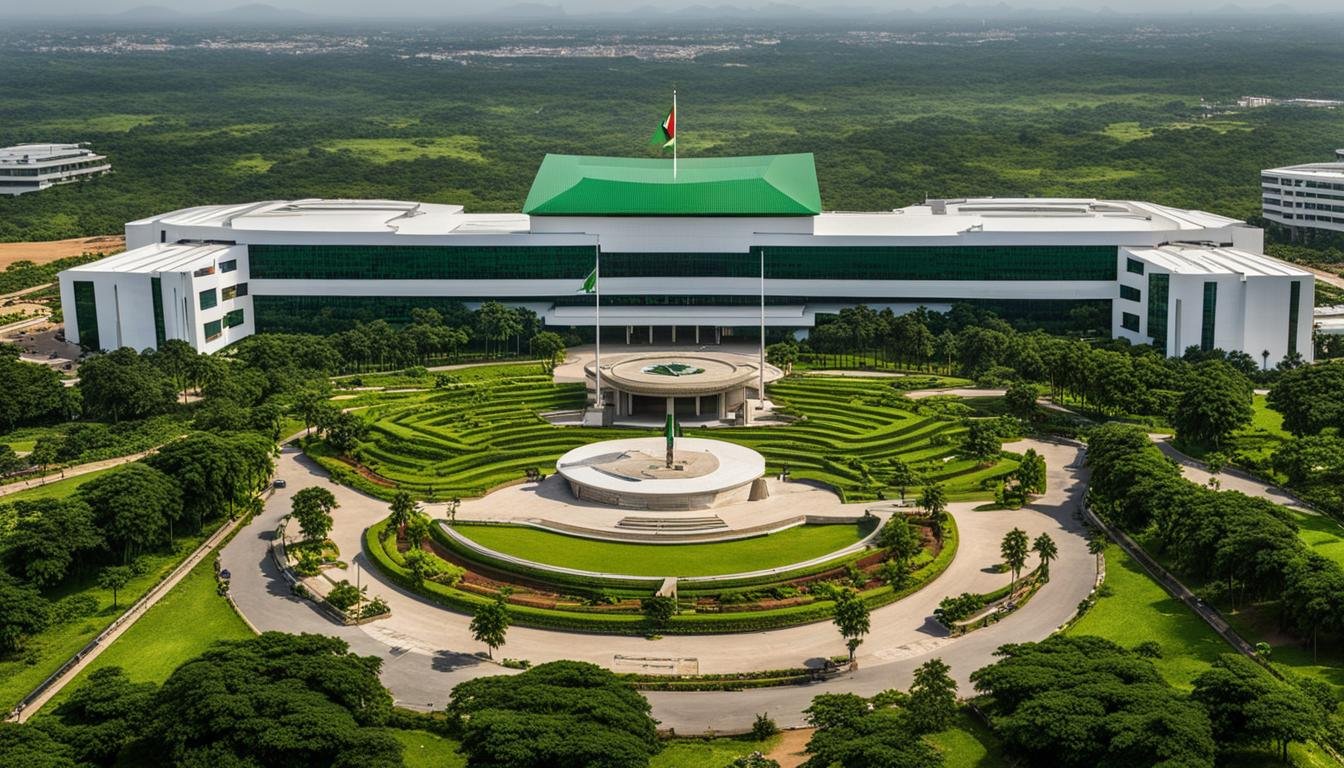In this article, I will delve into the details of Saudi Arabia Vision 2030, a strategic plan that aims to transform the Kingdom’s economy and society. Pioneered by King Salman bin Abdulaziz al Saud and embraced by Crown Prince Mohammed bin Salman, this visionary plan sets forth a roadmap to reduce Saudi Arabia’s dependence on oil, diversify its economy, and create a sustainable and vibrant society.
At its core, Saudi Arabia Vision 2030 focuses on three key pillars: cultivating a vibrant society, developing a thriving economy, and realizing an ambitious nation. By focusing on these pillars, the plan outlines a range of initiatives and strategies designed to achieve long-term goals and secure a prosperous future for the kingdom.
Through this comprehensive plan, Saudi Arabia aims to become a global leader and foster sustainable development that aligns with the United Nations’ Sustainable Development Goals. Social and cultural reforms, economic diversification, and investment in human capital are just a few of the critical elements that form the backbone of Vision 2030.
Join me on this journey as we explore the various aspects of Saudi Arabia Vision 2030 and gain a deeper understanding of the roadmap to a brighter future for the Kingdom.
Key Takeaways:
- Saudi Arabia Vision 2030 is a strategic plan developed to transform the Kingdom’s economy and society.
- The plan focuses on three pillars: cultivating a vibrant society, developing a thriving economy, and realizing an ambitious nation.
- Initiatives within Vision 2030 aim to reduce Saudi Arabia’s reliance on oil and foster economic diversification.
- Social and cultural reforms are integral to creating a more inclusive and dynamic society.
- Investment in human capital and job creation are key priorities for achieving long-term sustainable growth.
Introduction to the Kingdom’s Progressive Blueprint
The Kingdom of Saudi Arabia is paving the way for economic and social reform through its visionary plan known as Vision 2030. This dynamic blueprint sets out to modernize the country, decrease its dependence on oil revenues, and create a future of prosperity and sustainability for all its citizens. By diversifying the economy, investing in human capital, and implementing sweeping social and cultural reforms, Saudi Arabia strives to position itself as a trailblazer in the global arena and foster long-term growth and well-being.
Under the guidance of Vision 2030, Saudi Arabia envisions a society that embraces innovation, entrepreneurship, and technological advancement. By opening doors to new industries and expanding beyond oil, the Kingdom seeks to unlock unlimited potential and seize untapped opportunities for economic growth and job creation. Moreover, the plan recognizes the crucial role of its people as the driving force behind progress and development. Through education, training, and skills enhancement programs, Saudi Arabia aims to empower its citizens for a future filled with endless possibilities.
“Vision 2030 is our ambitious roadmap towards a prosperous and sustainable future. By prioritizing economic diversification, investing in human capital, and promoting social progress, we aim to reshape the destiny of our nation.”
The Kingdom’s commitment to Vision 2030 is reflected in its tireless efforts to achieve tangible results and realize its ambitious goals. With a renewed focus on sustainable development and the creation of a business-friendly environment, Saudi Arabia aims to attract foreign investors and foster strategic partnerships that will drive innovation and economic transformation. By embracing change and actively engaging in international collaborations, the Kingdom of Saudi Arabia is set to become a beacon of progress and an exemplar of positive change for the world.
Assessing the Three Pillars of Vision 2030 Saudi Arabia
Vision 2030 Saudi Arabia is a comprehensive plan that aims to transform the country by focusing on three key pillars: cultivating a vibrant society, developing a thriving economy, and realizing an ambitious nation. These pillars form the foundation of the plan’s objectives and represent the essential elements necessary for Saudi Arabia’s progress and success.
Cultivating a Vibrant Society
The first pillar of Vision 2030 is centered around cultivating a vibrant society by enhancing social and cultural opportunities. This involves promoting inclusivity, empowering individuals, and creating a dynamic environment that fosters creativity and innovation. Through investments in education, healthcare, and social initiatives, Saudi Arabia is committed to improving the quality of life for its citizens and creating a society that thrives on diversity and individual development.
Developing a Thriving Economy
The second pillar focuses on developing a thriving economy by reducing reliance on oil revenues and diversifying the economy. Saudi Arabia recognizes the need to explore new sectors and industries to drive economic growth and create sustainable job opportunities. By investing in sectors such as tourism, renewable energy, and manufacturing, the country aims to attract foreign investment, stimulate entrepreneurship, and foster innovation. This economic transformation will pave the way for long-term prosperity and create a resilient and dynamic economy.
Realizing an Ambitious Nation
The third pillar of Vision 2030 involves realizing an ambitious nation through political and institutional reforms. Saudi Arabia aims to set and achieve ambitious goals aligned with the United Nations’ Sustainable Development Goals. By implementing comprehensive reforms in governance, transparency, and accountability, the country seeks to create a progressive and forward-thinking nation that is ready to tackle global challenges and contribute to the international community.
Through the three pillars of cultivating a vibrant society, developing a thriving economy, and realizing an ambitious nation, Saudi Arabia is committed to achieving its Vision 2030 goals of economic transformation, sustainable development, and the diversification of its economy. These pillars form the backbone of the plan, outlining the strategies and initiatives that will shape the future of the kingdom and create a prosperous and sustainable society for its citizens.
Decoding What is Saudi Arabia Vision 2030
Saudi Arabia Vision 2030 is a comprehensive and ambitious plan that aims to transform the nation’s economy and society. The vision encompasses a wide range of initiatives and reforms across various sectors, such as education, healthcare, infrastructure, tourism, and finance. The goal is to diversify the economy, promote entrepreneurship, and invest in key sectors to create a sustainable and prosperous future for Saudi Arabia.
By embracing strategic partnerships and collaborations on an international level, Saudi Arabia is working towards achieving its vision and establishing itself as a global hub for innovation and growth. The vision’s initiatives include fostering innovation, developing human capital, improving infrastructure, and implementing policies and reforms to drive economic development.
To visualize the impact of Saudi Arabia Vision 2030, refer to the table below:
| Focus Area | Initiatives |
|---|---|
| Education | Enhancing the quality of education, promoting digital skills, and encouraging research and development |
| Healthcare | Improving healthcare services, expanding medical facilities, and investing in cutting-edge medical technologies |
| Infrastructure | Developing transportation networks, upgrading urban planning, and investing in sustainable energy projects |
| Tourism | Promoting tourism as a key sector, developing tourist destinations, and attracting international visitors |
| Finance | Strengthening the financial sector, encouraging investment, and facilitating financial services |
Initiatives under Saudi Arabia Vision 2030
As illustrated in the table, Saudi Arabia is implementing a wide range of initiatives to transform its society and economy. By focusing on these areas and embracing a forward-thinking approach, the vision aims to position Saudi Arabia as a sustainable and thriving nation in the coming years.
Government Reforms and the Public Sector’s Transformation
Under Saudi Arabia Vision 2030, significant government reforms and transformations are taking place to improve the efficiency and effectiveness of the public sector. Key areas of focus include enhancing government services, increasing transparency and accountability, and fostering a culture of innovation. These reforms aim to streamline processes, reduce bureaucracy, and create a more business-friendly environment.
Key government efficiency improvements
The Saudi Arabian government is investing in improving the efficiency of its operations by implementing digital solutions and modernizing administrative processes. By embracing technology and automation, the government aims to simplify procedures, reduce paperwork, and enhance service delivery. This includes initiatives such as online portals for streamlined business registration, digitized government services, and electronic document management systems.
New growth opportunities in public services
To drive economic transformation, Saudi Arabia is focusing on unlocking new growth opportunities in public services. This includes investing in key sectors such as healthcare, education, and transportation. By improving infrastructure, expanding facilities, and promoting private sector participation through public-private partnerships, the government aims to enhance the quality and accessibility of public services. These initiatives will not only create job opportunities but also improve the overall well-being of the Saudi Arabian population.
Economic Diversification and Saudi Arabia’s Future Goals
Economic diversification is a crucial goal of Saudi Arabia Vision 2030. The plan aims to reduce the country’s reliance on oil and develop other sectors to drive economic growth. By promoting the growth of non-oil industries, such as tourism, manufacturing, and renewable energy, Saudi Arabia seeks to create new job opportunities, attract foreign investment, and foster innovation and entrepreneurship.
Alongside economic diversification, the plan also emphasizes social and cultural reforms to create a more inclusive and dynamic society that values creativity, diversity, and individual empowerment.
“By promoting the growth of non-oil industries, Saudi Arabia seeks to create new job opportunities, attract foreign investment, and foster innovation and entrepreneurship.”
This combined effort to diversify the economy and implement social and cultural reforms aligns with Saudi Arabia’s overall goals of achieving sustainable development and reducing its dependence on oil revenues. By breaking away from the traditional oil-based economy, Saudi Arabia is paving the way for a more resilient and prosperous future.
The focus on economic diversification is aimed at creating a more balanced and resilient economy, ensuring long-term stability and growth even in the face of fluctuating oil prices. This includes investing in sectors such as tourism, entertainment, renewable energy, and manufacturing, which have the potential to generate significant economic opportunities and employment.
Simultaneously, Saudi Arabia recognizes the importance of social and cultural reforms in creating a modern and progressive society. These reforms include promoting women’s rights and empowerment, improving access to quality education and healthcare, and fostering an environment that supports individual creativity and diversity.
Through economic diversification and social and cultural reforms, Saudi Arabia aims to create a vibrant and dynamic society that is able to adapt to global challenges and opportunities. By breaking away from its dependence on oil and embracing a more diverse and inclusive economy, Saudi Arabia is working towards achieving its long-term goals outlined in Vision 2030.
Table
| Economic Diversification Sectors | Key Initiatives |
|---|---|
| Tourism | Promoting tourist attractions, developing tourist infrastructure, and attracting international visitors. |
| Manufacturing | Encouraging investment in manufacturing industries, enhancing local production capabilities, and promoting exports. |
| Renewable Energy | Investing in renewable energy sources like solar and wind, and reducing reliance on fossil fuels. |
| Knowledge Economy | Supporting research and development, innovation, and entrepreneurship to drive technological advancements. |
Insights into Saudi Vision 2030 Goals
As part of Saudi Vision 2030, reducing the country’s dependency on oil revenues is a key goal. To achieve this, the plan focuses on implementing strategies for economic diversification. One of the primary strategies involves nurturing and expanding new sectors that have the potential for strong economic growth. These sectors include tourism, entertainment, renewable energy, and manufacturing.
The Saudi government aims to attract foreign investment in these sectors and foster innovation and entrepreneurship to stimulate economic development. By reducing oil dependency and expanding into new sectors, Saudi Arabia aims to achieve sustainable and balanced economic growth, setting the stage for a prosperous future.
Strategies for reducing oil dependency
The Saudi Vision 2030 plan outlines several strategies for reducing the country’s dependency on oil. These strategies include:
- Diversifying the economy by investing in non-oil sectors.
- Promoting innovation and research and development in industries beyond oil.
- Supporting entrepreneurship and small and medium-sized enterprises (SMEs) to stimulate economic growth in non-oil sectors.
- Attracting foreign direct investment in sectors such as tourism, manufacturing, and renewable energy.
Expanding new sectors for economic growth
Expanding new sectors is a key component of Saudi Arabia’s economic diversification strategy. The vision aims to unlock the potential of sectors that have the capacity for strong economic growth. These sectors include:
- Tourism: Developing tourism infrastructure and promoting Saudi Arabia as a tourist destination.
- Entertainment: Investing in the entertainment industry to enhance cultural offerings and attract international events and exhibitions.
- Renewable energy: Investing in renewable energy projects to reduce reliance on fossil fuels and promote sustainability.
- Manufacturing: Stimulating growth in the manufacturing sector to create jobs and support domestic production.
By expanding into these sectors, Saudi Arabia aims to diversify its economy, create new job opportunities, and reduce dependence on oil revenues.
Saudi Arabia’s National Transformation Program
The National Transformation Program (NTP) is a key component of Saudi Arabia’s Vision 2030 initiatives. It serves as a roadmap for implementing the vision’s objectives and outlines specific initiatives and projects aimed at achieving them.
Under the NTP, several areas are prioritized for transformation, including the enhancement of public services, the improvement of the business environment, the development of human capital, and the strengthening of the non-profit sector. These initiatives are designed to drive economic growth, promote innovation, and create a sustainable and prosperous future for Saudi Arabia.
To ensure the success of the NTP and measure progress, key performance indicators and metrics are regularly monitored and evaluated. This allows for effective tracking of the implementation of the plan and enables timely adjustments and improvements to be made.
By focusing on the NTP’s initiatives, Saudi Arabia is taking significant steps toward achieving its economic transformation plan and realizing the goals of Vision 2030. Through strategic implementation and continuous evaluation, the country is making progress towards building a diversified and resilient economy, improving public services, and fostering growth in various sectors.
Initiatives under the National Transformation Program
Within the National Transformation Program, various initiatives are being implemented to drive economic and social transformation. These initiatives encompass a wide range of sectors and focus on key areas of development.
- Enhancing public services through digital transformation and improved service delivery
- Developing the business environment to attract foreign investment and promote entrepreneurship
- Investing in human capital through education and training programs to build a skilled workforce
- Strengthening the non-profit sector to support social development and community engagement
These initiatives are instrumental in achieving the objectives of Vision 2030 and creating a modern, diversified, and resilient economy in Saudi Arabia.
Measuring progress and impact
Measuring the progress and impact of the National Transformation Program is essential to ensure its success and effectiveness. Key performance indicators (KPIs) and metrics are used to evaluate the implementation of the program and track its outcomes.
By regularly monitoring these KPIs and metrics, Saudi Arabia can assess the effectiveness of the initiatives, identify areas of improvement, and make informed decisions to optimize the program’s impact. This allows for adaptability and flexibility in the implementation process, ensuring that the objectives of Vision 2030 are met.
By measuring progress and impact, Saudi Arabia can monitor the transformational journey it is undertaking, identify successful strategies and initiatives, and learn from any challenges encountered along the way. This iterative process of evaluation and adjustment ensures that the National Transformation Program remains on track and moves closer to achieving the goals and aspirations of Vision 2030.
Social and Cultural Reforms Underpinning the Vision
Saudi Arabia Vision 2030 encompasses significant social and cultural reforms aimed at transforming the kingdom and improving the quality of life for its citizens. These reforms include increasing women’s participation in the workforce, promoting youth empowerment, enhancing healthcare and education systems, and fostering a vibrant cultural scene. Additionally, political reforms seek to enhance governance, transparency, and accountability in the country. Through these social and cultural reforms, Saudi Arabia aims to create a more inclusive and progressive society that embraces diversity and promotes individual rights and freedoms.
Investment in Human Capital and Job Creation
Saudi Arabia Vision 2030 recognizes the importance of investing in human capital and creating job opportunities for its citizens. To achieve this, the plan focuses on improving the education and training system to equip individuals with the necessary skills for the evolving job market. Additionally, the plan supports small and medium-sized enterprises (SMEs) and entrepreneurship by providing financial assistance, promoting innovation, and fostering a supportive business environment.
By investing in human capital and supporting SMEs, Saudi Arabia aims to:
- Develop a skilled workforce that meets the demands of the future
- Drive economic growth and reduce dependence on oil
- Promote innovation and entrepreneurship
- Create sustainable and inclusive job opportunities
Through initiatives such as vocational training programs, scholarships, and partnerships with educational institutions, Saudi Arabia is equipping its citizens with the knowledge and skills needed to succeed in a rapidly changing global economy.
Saudi Vision 2030 Projects and Infrastructure
Saudi Vision 2030 encompasses various mega-projects and infrastructure developments that play a vital role in the economic transformation of Saudi Arabia. These projects, including NEOM, Qiddiya, and the Red Sea Project, aim to attract foreign investment, stimulate economic growth, and create job opportunities in key sectors. These ambitious initiatives underline the commitment to diversifying the economy and reducing its reliance on oil revenues.
The role of mega-projects in economic transformation
Mega-projects in Saudi Arabia have the potential to reshape industries, attract foreign investment, and spur economic development. These large-scale initiatives bring new opportunities, create jobs, and promote innovation across various sectors. By investing in mega-projects, Saudi Arabia aims to position itself as a hub for tourism, entertainment, technology, and renewable energy. These ambitious endeavors align with the goals of Saudi Vision 2030 and contribute to the nation’s overall economic transformation.
Significance of the Public Investment Fund
The Public Investment Fund (PIF) plays a crucial role in financing Saudi Vision 2030 projects and driving economic diversification. As the sovereign wealth fund of Saudi Arabia, the PIF invests in domestic and international projects that support the realization of Vision 2030’s goals and objectives. The PIF’s investments span across various sectors, including infrastructure, technology, real estate, and entertainment. By leveraging its resources and expertise, the PIF actively contributes to the sustainable growth and development of Saudi Arabia’s economy.
Partnerships and International Investment Opportunities
The success of Saudi Arabia Vision 2030 relies on forging strategic partnerships and attracting international investment opportunities. By creating a favorable investment environment, Saudi Arabia aims to lure foreign investors and facilitate economic growth. The country offers incentives, benefits, and business-friendly policies to attract international companies looking to expand their operations in the region. Saudi Arabia also seeks to establish sustainable corporate alliances, promoting knowledge transfer, technological advancements, and long-term economic growth. By leveraging international expertise and resources, Saudi Arabia is poised to accelerate its economic transformation and achieve its future plans.
The Lure for Foreign Investors
Foreign investors are attracted to Saudi Arabia for several reasons:
- The country’s strategic location as a hub for regional and global markets
- A strong commitment to economic diversification and reducing dependence on oil revenues
- A rapidly growing consumer market with a young and dynamic population
- Opportunities in key sectors such as technology, tourism, renewable energy, and infrastructure
- A favorable investment environment with incentives, tax breaks, and streamlined regulations
Building Sustainable Corporate Alliances
Saudi Arabia recognizes the importance of sustainable corporate alliances to drive economic growth:
- Promoting knowledge transfer and technological advancements through international partnerships
- Facilitating the exchange of ideas, expertise, and innovation to fuel economic development
- Collaborating with global companies to develop specialized industries and sectors
- Encouraging long-term investments that contribute to Saudi Arabia’s vision and objectives
- Establishing joint ventures and research collaborations to foster economic diversification
By prioritizing partnerships and international investment opportunities, Saudi Arabia is positioning itself as a global player in the business world. The country’s commitment to economic transformation, combined with its strategic location and favorable investment environment, makes it an attractive destination for foreign investors. With sustained efforts to build sustainable corporate alliances and attract international expertise, Saudi Arabia is well on its way to achieving its future plans and creating a prosperous and sustainable future for its citizens.
Conclusion
The Saudi Arabia Vision 2030 plan is a visionary and transformative roadmap that aims to shape the future of the kingdom. With a clear focus on economic diversification, social and cultural reforms, and strategic partnerships, Saudi Arabia is committed to creating a sustainable and prosperous future for its citizens. By reducing its dependence on oil revenues and promoting entrepreneurship, Saudi Arabia is laying the foundation for long-term economic growth. The plan also emphasizes investing in human capital, improving education and training, to create a skilled workforce that can thrive in the changing job market.
Furthermore, the social and cultural reforms under Vision 2030 aim to create a more inclusive and progressive society. By increasing women’s participation in the workforce, promoting youth empowerment, and enhancing healthcare and education systems, Saudi Arabia is striving towards a more prosperous and vibrant future. As Saudi Arabia continues to implement the various initiatives and strategies outlined in Vision 2030, the kingdom is poised to solidify its position as a leading global economy and a beacon of progress and innovation. The success of the plan will be measured by its ability to achieve its goals, create sustainable economic growth, and improve the quality of life for all Saudis.
FAQ
What is the Saudi Arabia Vision 2030 plan?
The Saudi Arabia Vision 2030 plan is a strategic blueprint developed by the Kingdom of Saudi Arabia to transform its economy and society. It aims to reduce the country’s dependence on oil, diversify its economy, and create a more sustainable and vibrant society.
Who launched and embraced the Saudi Arabia Vision 2030 plan?
The Saudi Arabia Vision 2030 plan was launched under the guidance of King Salman bin Abdulaziz al Saud and embraced by Crown Prince Mohammed bin Salman.
What are the three pillars of Saudi Arabia Vision 2030?
The three pillars of Saudi Arabia Vision 2030 are cultivating a vibrant society, developing a thriving economy, and realizing an ambitious nation.
What does cultivating a vibrant society entail?
Cultivating a vibrant society involves enhancing social and cultural opportunities in Saudi Arabia.
What does developing a thriving economy focus on?
Developing a thriving economy focuses on economic diversification and reducing Saudi Arabia’s reliance on oil.
What does realizing an ambitious nation involve?
Realizing an ambitious nation involves political and institutional reforms, as well as setting and achieving ambitious goals aligned with the United Nations’ Sustainable Development Goals.
How does Saudi Arabia plan to achieve economic diversification?
Saudi Arabia aims to achieve economic diversification by nurturing and expanding new sectors that have the potential for strong economic growth, such as tourism, entertainment, renewable energy, and manufacturing.
What is the National Transformation Program (NTP)?
The National Transformation Program (NTP) is an integral part of the implementation of Saudi Arabia Vision 2030. It outlines specific initiatives and projects aimed at achieving the objectives set forth in the vision.
What are the key government reforms under Saudi Vision 2030?
Key government reforms include enhancing government services, increasing transparency and accountability, and fostering a culture of innovation.
How does Saudi Arabia plan to invest in human capital and create job opportunities?
Saudi Arabia plans to invest in human capital by improving the education and training system and supporting small and medium-sized enterprises (SMEs) and entrepreneurship.
What role do mega-projects play in Saudi Vision 2030?
Mega-projects play a crucial role in the economic transformation of Saudi Arabia by attracting foreign investment, creating job opportunities, and stimulating economic growth in key sectors.
What is the significance of the Public Investment Fund?
The Public Investment Fund (PIF) plays a significant role in financing Saudi Vision 2030 projects and driving economic diversification as the sovereign wealth fund of Saudi Arabia.
How does Saudi Arabia attract foreign investors?
Saudi Arabia attracts foreign investors by creating a favorable investment environment, offering incentives and benefits, and implementing business-friendly policies.
What are the objectives of partnerships and international investment opportunities under Saudi Vision 2030?
Partnerships and international investment opportunities aim to leverage international expertise and resources to accelerate Saudi Arabia’s economic transformation and achieve long-term success.
What is the goal of Saudi Arabia Vision 2030?
The goal of Saudi Arabia Vision 2030 is to create a sustainable and prosperous future for the country by implementing economic diversification, social and cultural reforms, and strategic partnerships.
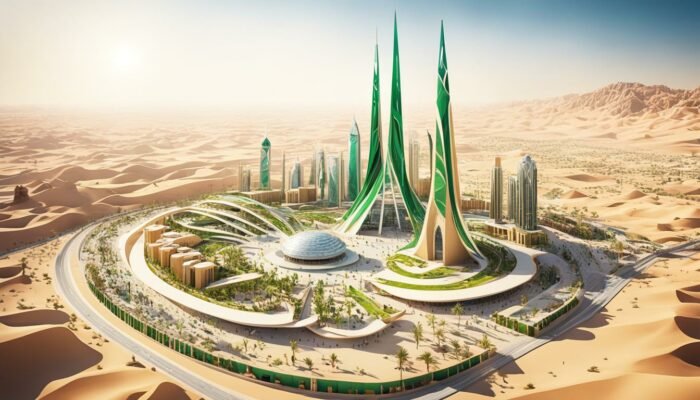
![Saudi Oil Industry Key Stats Unveiled [2024] 4 Saudi Oil Industry Key Stats](https://zoets.b-cdn.net/wp-content/uploads/2024/02/h.jpg)


